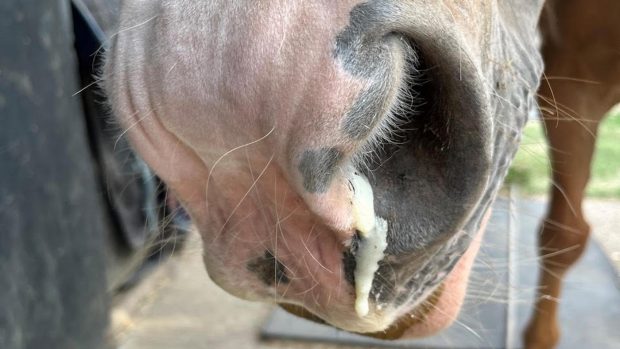An outbreak of equine flu that has spread to two vaccinated horses in Kent does not raise doubts about the effectiveness of the vaccine, according to the Animal Health Trust (AHT).
Dr Richard Newton, head of epidemiology at the AHT, told H&H he was slightly concerned that vaccinated horses had contracted flu, but stressed that the efficiency of the vaccine could not be questioned unless a higher proportion of equines were affected, and the reasons for any vaccine failure properly investigated.
He said: There is no significant evidence that this flu is breaking through the vaccine.
A Welsh Mountain pony and an Arab in West Peckham, Kent, contracted the virus after the arrival at their yard of an infected Andalucian horse imported from Spain. This infection does not appear to have spread any further.
Kathryn Outram, owner of all three horses, told H&H: Blood tests show that my vaccinated Arab now has a secondary bacterial infection. Hes struggling.
Dr Tim Mair, a partner at Bell Equine Veterinary Clinic (BEVC) in Kent, the practice which is treating the horses, said: To some degree the effectiveness of a particular vaccine depends on precisely what strain of virus is circulating among horses at the time.
H&H vet adviser Karen Coumbe said that although no vaccine is 100% effective, a vaccinated horse should, if infected, suffer a less severe infection and recover more quickly than an unvaccinated one. She added that vaccination also raises herd immunity.
A horse is likely to be off work a week for every day it had a very high temperature [more than 39° C], she said.
Six other outbreaks of flu in the Southampton, Maidstone and Birmingham areas have been reported to the AHT since the end of May. The horses involved were all either unvaccinated or of unknown vaccination status. Some of these cases have been linked to horses imported from Ireland.
DEFRA confirmed to H&H that current EU rules do not require horses moving between EU member states to have the vaccination.




